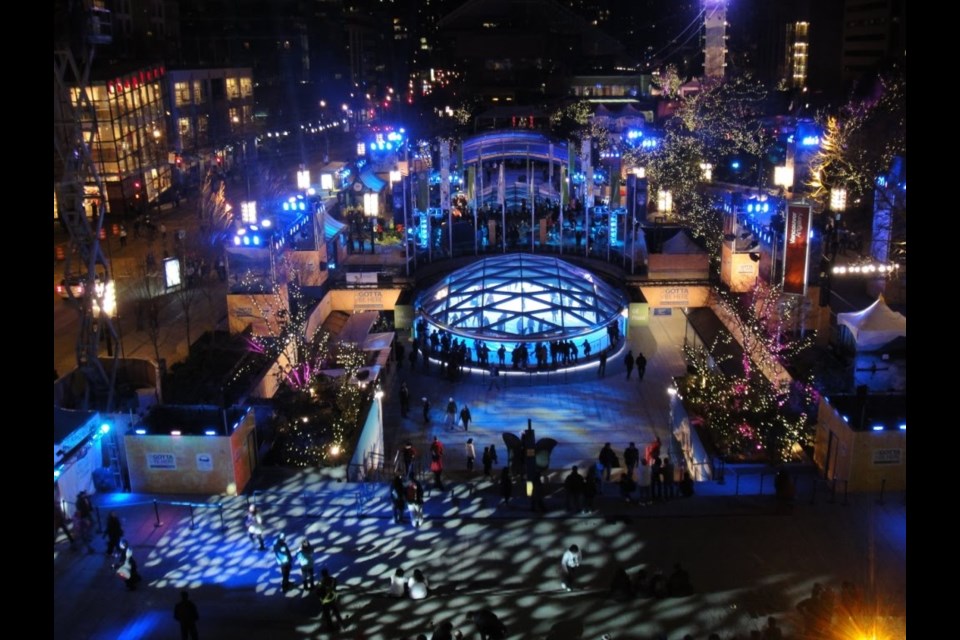Do you think Vancouver is a better city today than it was five years ago?
I was first asked this question by my Uncle Dave during a 1991 visit from London, England.
Five years earlier, he had attended Expo 86 and was struck by the changes that had taken place around the city during the five years.
I recall telling my uncle Vancouver was a much better city than it was prior to Expo.
Vancouverites had been urged to invite the world for Expo and people came, especially Asian investors like Li Ka-shing who purchased land and started to develop around the region.
The city had become much more cosmopolitan and new development was contributing to an improved economic vitality.
Unfortunately, my uncle passed away a few years later and never made it to the 2010 Winter Olympics. However, had he attended and returned this past week during its fifth anniversary, I suspect he would have again asked is Vancouver better today than five years ago.
I would have again answered yes.
The Olympics did not transform Vancouver as much as Expo 86; however there is no doubt the Games served as a catalyst for increased tourism and infrastructure improvements.
While I am the first to acknowledge Vancouver would have seen an expanded convention centre, upgraded road to Whistler and Richmond/airport transit line without the Games, the Olympics accelerated their construction.
The Olympics also gave us popular new community facilities including the Hillcrest Community Centre and the Richmond Oval, and has also generated an astounding amount of new real estate development and revenue for the region.
Sadly, the same cannot be said for most of the Sochi 2014 Winter Olympics facilities I visited just over a year ago. Like many 2008 Beijing Summer Olympic venues, today they lie fallow, costing taxpayers billions.
Speaking of money, one of the most controversial components of the 2010 Olympics was the Southeast False Creek Athletes’ Village. Despite a difficult birth, it has grown into an attractive, vibrant new community. However, there remain unspoken issues including the future ownership and management of some very expensive social housing.
The Village at False Creek, as it is now called, has been the catalyst for a significant amount of new development south and east of the site. While the city’s neighbourhood zoning resulted in building designs which appear to me to be too tall to be midrise structures and too short to be highrises, a once under-utilized industrial area is being transformed.
While I applaud Expo 86 and the Olympics for enhancing the city’s cosmopolitan character and serving as catalysts for new neighbourhood developments, not everyone agrees the city is better than it was in the past.
Many attribute Vancouver’s high house prices to the foreign investment that followed these international events, even though Vancouver has always had higher land and housing prices by virtue of our geography and attractiveness as a place to live.
This is not going to change.
As we golf and garden while other parts of the country are shovelling snow and being warned to stay indoors because of dangerous wind-chill factors, expect an increasing number of baby boomers and seniors to move here. This will put even more pressure on house prices and also the need for improved transportation infrastructure.
This is why I am both frustrated and saddened by the forthcoming transportation referendum and those people unwilling to pay a 0.5 per cent sales tax increase because of questionable TransLink management.
On this, the fifth anniversary of the 2010 Olympics, we need to remember the tremendous civic pride and community spirit that existed during Expo and the winter Games.
We need to remind ourselves of how they changed our transportation habits and allowed us to enjoy a new-found spirit in the city.
We need to cast aside negative feelings towards the premier and TransLink and decide to vote yes for a sales tax dedicated to transportation improvements.
Let’s not forget the classic FRAM oil filter commercial which warned: “You can pay me now … or pay me later” when it will cost much more.
Otherwise, five years from now, Vancouver may not be a better city than today.
michaelarthurgeller@gmail.com
twitter.com/michaelgeller



